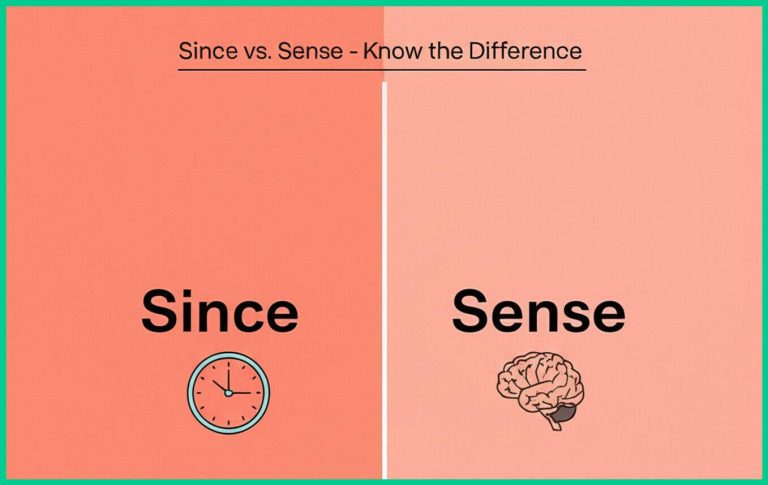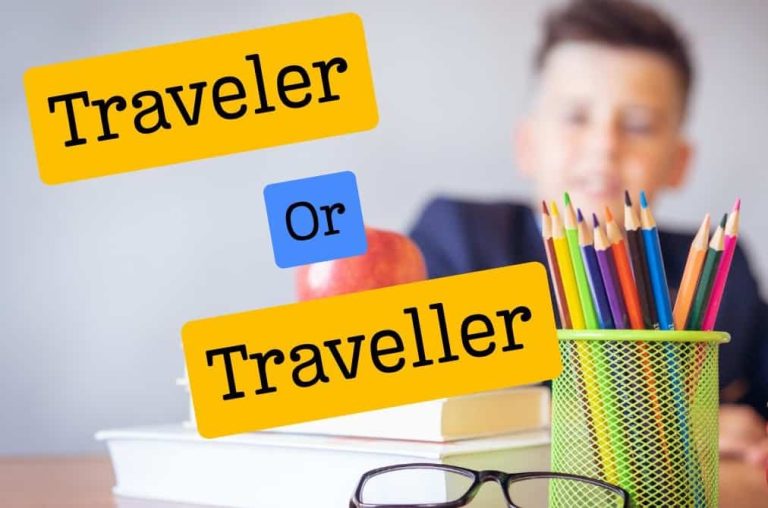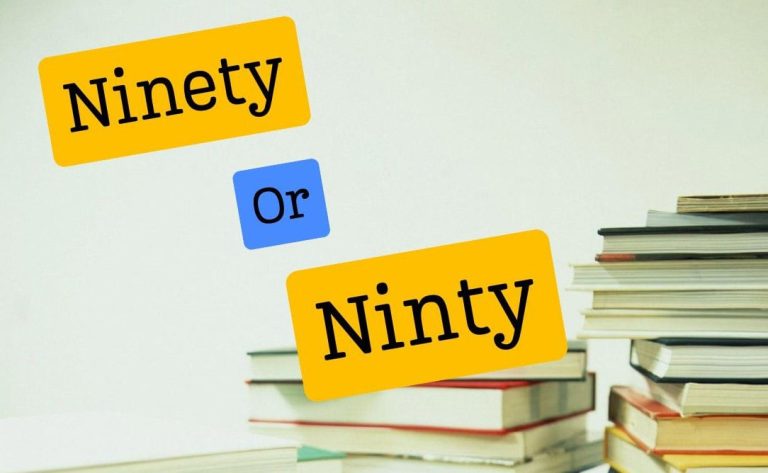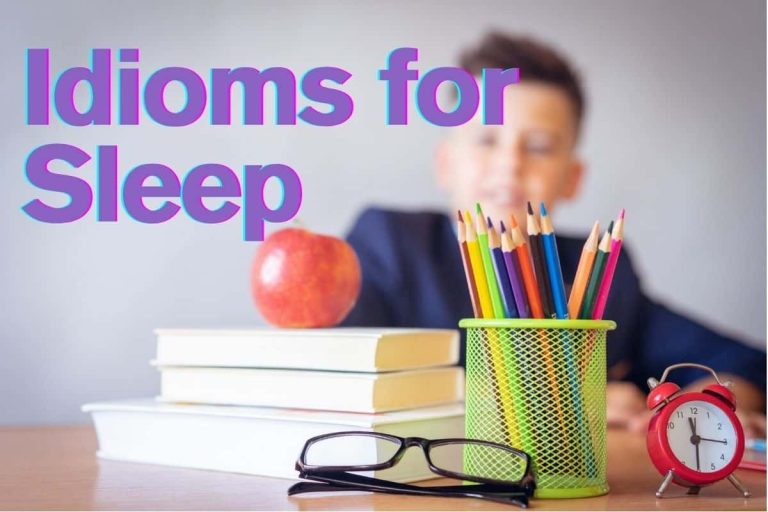150+ Funny Words That Start with ‘N’: Hilarious & Silly Terms
What exactly constitutes a “funny” word? It’s subjective, of course, but generally, funny words possess one or more of the following qualities: unusual sounds, unexpected meanings, or associations with humorous concepts. A word might sound funny because of its unusual combination of sounds, or it might be funny because it describes something ridiculous or unexpected.
Whether you’re a student looking to spice up your essays, a writer seeking inspiration, or simply someone who enjoys a good chuckle, this guide is for you. We’ll delve into definitions, usage, and even common mistakes, ensuring you can use these ‘N’ words with confidence and comedic flair.
Get ready to embark on a linguistic adventure filled with giggles and guffaws as we uncover the silliest, strangest, and most amusing ‘N’ words the English language has to offer.
Structural Breakdown of Funny ‘N’ Words
Understanding the structural elements of words can shed light on why certain ‘N’ words strike us as funny. Let’s break down the common components of these words:
- Phonetics: The sounds of the word. Words with unusual or unexpected sound combinations can be inherently funny. For example, words with repetitive sounds or unusual stress patterns.
- Morphology: The structure of the word itself. This includes prefixes, suffixes, and root words. A funny word might be a combination of morphemes in an unexpected way.
- Semantics: The meaning of the word. A word can be funny because of what it refers to. This could be something silly, absurd, or taboo.
- Etymology: The origin and history of the word. Sometimes, knowing where a word comes from can add to its humor. An archaic word used in a modern context, for example.
The interplay between these elements determines whether a word is perceived as humorous. A word with a funny sound but a serious meaning might not be as funny as a word with a funny sound and a silly meaning.
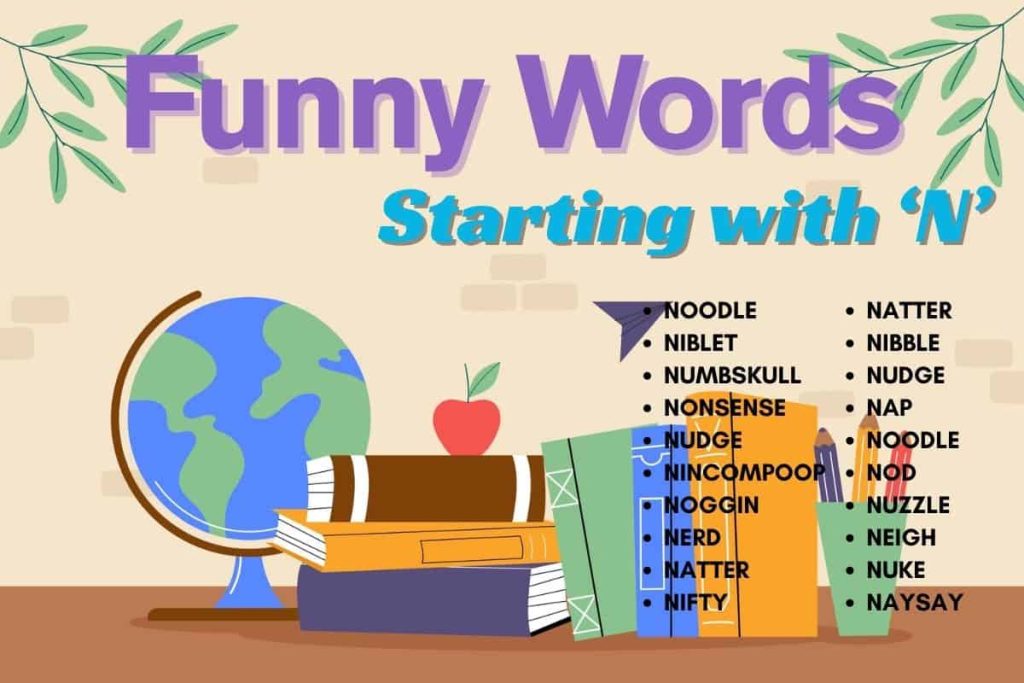
Types and Categories of Funny ‘N’ Words
Funny ‘N’ words can be categorized in several ways. Here are some common categories:
Nonsense Words
These are words that have no inherent meaning but are used for humorous effect. They often rely on unusual sounds and playful combinations of syllables.
Onomatopoeic Words
These words imitate sounds. While many onomatopoeic words aren’t inherently funny, some ‘N’ words in this category can be amusing due to the specific sound they represent or the context in which they’re used.
Slang and Informal Words
Slang terms often arise from playful or humorous intentions. Some ‘N’ words fall into this category, offering a lighthearted way to describe people, situations, or things.
Archaic Funny Words
These are old-fashioned words that sound funny to modern ears. Their humor often lies in their outdated nature and the contrast they create when used in contemporary settings.
Neologisms
These are newly coined words. Some neologisms are created with the specific intention of being funny, often by combining existing words in unexpected ways or inventing completely new terms.
Examples of Funny ‘N’ Words
Let’s dive into some specific examples of funny ‘N’ words, categorized by type:
Nonsense Words
These words have no real meaning but are fun to say and can add a playful touch to your language.
The following table contains a selection of nonsense words starting with “N”. These words are often used in playful contexts, such as children’s games or humorous writing, to create a sense of silliness and fun.
| Nonsense Word | Possible Connotation (Imagined) | Example Sentence |
|---|---|---|
| Niffle | A small, insignificant creature | “The garden was infested with niffles.” |
| Noodlefy | To turn something into noodles | “Please don’t noodlefy my brain with complex instructions!” |
| Noodleburger | A burger made of noodles | “I ordered a noodleburger at the restaurant, and it was surprisingly delicious.” |
| Nincompoop | A foolish or stupid person | “Don’t be such a nincompoop; think before you act.” |
| Namby-pamby | Weak, indecisive, or overly sentimental | “He was criticized for his namby-pamby approach to leadership.” |
| Noggin | A person’s head | “Use your noggin and figure out the solution.” |
| Nibling | A gender-neutral term for a niece or nephew | “My nibling is coming to visit this weekend, and I’m so excited.” |
| Nimwit | A foolish or stupid person | “Only a nimwit would try to climb that tree in this weather.” |
| Natter | To talk idly or chatter | “They spent the afternoon nattering about their neighbors.” |
| Nitwit | A foolish or stupid person | “He’s such a nitwit; he can’t even boil water properly.” |
| Noodle | To improvise or play aimlessly on a musical instrument | “He noodled on the guitar for hours without composing anything.” |
| Niggle | To worry or fret about something trivial | “Don’t niggle over the small details; focus on the big picture.” |
| Nosh | To eat food enthusiastically | “Let’s nosh on some pizza while we watch the movie.” |
| Nuzzle | To gently rub or cuddle with the nose | “The cat nuzzled against my leg, purring contentedly.” |
| Noodle-doodle | A nonsensical drawing of noodles | “She filled her notebook with noodle-doodles during the lecture.” |
| Noodle-brain | A silly or foolish person | “He’s such a noodle-brain; he always forgets where he puts his keys.” |
| Noodle-icious | Delicious like noodles | “This pasta dish is noodle-icious; I could eat it every day.” |
| Noodle-mania | An obsession with noodles | “Their family has a serious case of noodle-mania; they eat pasta every night.” |
| Noodle-topia | A paradise of noodles | “In my dreams, I visit noodle-topia, where rivers of sauce flow freely.” |
| Noodle-rific | Terrific or wonderful, like noodles | “The concert was noodle-rific; I had an amazing time.” |
| Noodle-tastic | Fantastic or excellent, like noodles | “This vacation has been noodle-tastic; I don’t want it to end.” |
| Noodle-rama | A spectacle or extravaganza of noodles | “The food festival was a noodle-rama; there were so many pasta dishes to try.” |
| Noodle-verse | A universe or world of noodles | “Welcome to the noodle-verse, where pasta is the only currency.” |
| Noodle-ocity | The speed or intensity of noodles | “The noodle-ocity of the chef’s cooking was impressive; he made pasta in seconds.” |
| Noodle-atron | A machine or device related to noodles | “They invented a noodle-atron that automatically dispenses spaghetti.” |
| Noodlification | The process of turning something into noodles | “The noodlification of the recipe was a culinary disaster.” |
| Noodle-ization | The act of making something resemble noodles | “The noodle-ization of the art project was quite unique.” |
| Noodle-craft | The art of making things out of noodles | “She excels at noodle-craft, creating intricate sculptures from pasta.” |
| Noodle-wizard | Someone skilled or magical with noodles | “The chef is a true noodle-wizard; he can create the most amazing dishes.” |
Onomatopoeic Words
These words imitate sounds. While not always funny on their own, the sounds they represent can be amusing in certain contexts.
Many of these words can also be used in children’s books to create a more immersive auditory experience.
The following table shows examples of onomatopoeic words starting with “N”. These words mimic real-world sounds and can be employed in various creative contexts to add more dynamism and sensory detail.
| Onomatopoeic Word | Sound Represented | Example Sentence |
|---|---|---|
| Nag | A constant complaining or scolding sound | “The leaky faucet would nag all night long.” |
| Nibble | A small, delicate biting sound | “The mouse began to nibble at the cheese.” |
| Nip | A quick, sharp pinching or biting sound | “The cold wind nipped at my cheeks.” |
| Natter | A rapid, indistinct chattering sound | “The birds nattered in the trees outside my window.” |
| Nudge | A gentle pushing sound | “She gave him a nudge to get his attention.” |
| Nestle | The soft rustling sound of settling into a comfortable place | “The kitten nestled in the blanket, purring softly.” |
| Nicker | The soft whinnying sound of a horse | “The horse let out a soft nicker when it saw its owner.” |
| Needle | A sharp, piercing sound, like a needle going through fabric | “The sewing machine’s needle made a rhythmic sound as it worked.” |
| Nuzzle | The soft rubbing sound of an animal’s nose | “The dog nuzzled against my hand, seeking affection.” |
| Nock | The sound of fitting an arrow to a bowstring | “He heard the nock of the arrow as the archer prepared to shoot.” |
| Notify | Mimics a bell or alert sound | “The app notified me with a ‘ding’ sound.” |
| Noise | A generic sound of disturbance | “The construction site was filled with overwhelming noise.” |
| Note | A musical sound | “The piano played a soothing note.” |
| Nod | The sound of a head tilting | “The statue seemed to nod in agreement.” |
| Nudge-nudge | Sound of repeated nudging | “The friends shared a ‘nudge-nudge’ to each other while talking.” |
| Nip-nip | Sound of repeated nipping | “The fish made a ‘nip-nip’ as it ate its food.” |
| Natter-natter | Sound of constant chattering | “The girls ‘natter-natter’ all day long.” |
| Nestle-nestle | Sound of repeated nestling | “The birds ‘nestle-nestle’ in their nests.” |
| Nuzzle-nuzzle | Sound of repeated nuzzling | “The puppies ‘nuzzle-nuzzle’ each other.” |
| Nibble-nibble | Sound of repeated nibbling | “The bunny ‘nibble-nibble’ all day long.” |
| Nock-nock | Sound of repeated nocking | “The archers ‘nock-nock’ their arrows.” |
| Notify-notify | Sound of repeated notification | “The system ‘notify-notify’ all day long.” |
| Noise-noise | Sound of constant noise | “The city ‘noise-noise’ all day long.” |
| Note-note | Sound of repeated notes | “The orchestra ‘note-note’ all day long.” |
| Nod-nod | Sound of repeated nodding | “The crowd ‘nod-nod’ in agreement.” |
| Nag-nag | Sound of repeated nagging | “The kids ‘nag-nag’ all day long.” |
| Nip-nock | Sound of nipping with a nock | “The animals ‘nip-nock’ the leaves.” |
| Natter-nudge | Sound of chattering while nudging | “The friends ‘natter-nudge’ each other.” |
| Nestle-nuzzle | Sound of nestling while nuzzling | “The puppies ‘nestle-nuzzle’ each other.” |
Slang and Informal Words
Slang terms can be humorous due to their novelty, unexpected meanings, or irreverent tone.
The following table presents slang and informal words that begin with “N,” offering a glimpse into the ever-evolving landscape of colloquial language and its potential for humor.
| Slang Word | Meaning | Example Sentence |
|---|---|---|
| Nerd | A person perceived as overly intellectual, obsessive, or lacking social skills | “He’s such a nerd; he knows everything about computers.” |
| Nosh | Food, or to eat food | “Let’s grab some nosh before the movie starts.” |
| Nuke | To heat something in a microwave | “I’m going to nuke this leftover pizza for lunch.” |
| Nifty | Good, excellent, or stylish | “That’s a nifty gadget you’ve got there.” |
| Nookie | A slang term for sexual intercourse | “They were caught getting nookie in the back of the car.” |
| Noodle | A simpleton or a foolish person | “He’s such a noodle, always getting things wrong.” |
| Noggin | A person’s head | “Use your noggin and think before you speak.” |
| Natter | Chatter idly or gossip | “The old ladies spent the afternoon nattering about their neighbors.” |
| Nark | An informer or someone who spoils the fun | “Don’t be such a nark; let us enjoy ourselves.” |
| Nitty-gritty | The essential or most important details | “Let’s get down to the nitty-gritty and discuss the budget.” |
| Nosh-up | A large meal or feast | “We had a real nosh-up at the wedding reception.” |
| Naff | Uncool or lacking in style | “That outfit is so naff; you should change.” |
| Nipper | A young child | “The nippers were playing in the park.” |
| Nudge | To gently persuade or encourage someone | “She had to nudge him to get him to clean his room.” |
| Nuke (it) | To completely destroy or obliterate something | “We need to nuke this problem before it gets worse.” |
| Nerd out | To become extremely enthusiastic and knowledgeable about a particular subject | “He started nerding out about astrophysics at the party.” |
| Nosh pit | A place where food is consumed enthusiastically | “The cafeteria turned into a nosh pit during lunchtime.” |
| Noodle around | To spend time idly or aimlessly | “We spent the afternoon noodling around at the beach.” |
| Noggin knocker | A low-hanging object that one might bump their head on | “Watch out for that noggin knocker; you might hit your head.” |
| Narky | Irritable or bad-tempered | “He was feeling narky because he hadn’t had enough sleep.” |
| Naff off | A rude way to tell someone to go away | “Just naff off and leave me alone.” |
| Nippy | Chilly or cold | “It’s a bit nippy outside; you should wear a jacket.” |
| Nosher | Someone who enjoys eating | “He’s a real nosher; he loves trying new foods.” |
| Noodle-brain | A person with a silly or confused mind | “He’s such a noodle-brain; he forgets everything.” |
| Nifty-keen | Extremely good or excellent | “That’s a nifty-keen idea; let’s try it.” |
| Nosh-fest | A large gathering where a lot of food is consumed | “The company picnic was a real nosh-fest.” |
| Noodle-oodle | To wander aimlessly or without purpose | “I spent the day noodle-oodling around town.” |
| Noggin-nodder | Someone who agrees with everything that is said | “He’s such a noggin-nodder; he never challenges anything.” |
| Nark-attack | A sudden outburst of irritation or bad temper | “He had a nark-attack when he couldn’t find his keys.” |
Archaic Funny Words
These words, once common, now sound amusingly old-fashioned and out of place in modern conversation.
The following table provides examples of archaic funny words that start with “N.” These words, once commonplace, now possess a quaint or humorous quality due to their obsolescence.
| Archaic Word | Meaning | Example Sentence |
|---|---|---|
| Nathless | Nevertheless | “He was tired, nathless he continued working.” |
| Nigh | Near | “The time is nigh when we must depart.” |
| Nonesuch | A person or thing that is unparalleled or unique | “She was a nonesuch in her field of expertise.” |
| Nolt | Cattle | “The farmer tended to his nolt with care.” |
| Noop | A painful swelling | “He suffered a noop on his forehead after the accident.” |
| Nithing | A worthless or contemptible person | “He was considered a nithing by all who knew him.” |
| Noyous | Troublesome or annoying | “The child was being noyous, disrupting the entire class.” |
| Numbles | The entrails of an animal, especially deer | “The hunter prepared the numbles for a traditional dish.” |
| Noddypeak | A foolish or stupid person | “Don’t be such a noddypeak; think before you act.” |
| Nosewise | Having a keen sense of smell or perception | “The hound was nosewise, able to track the scent with ease.” |
| Nantle | To play or dally amorously | “The couple was seen nantling in the garden.” |
| Nimsy-pimsy | Affectedly dainty or sentimental | “She spoke in a nimsy-pimsy manner, trying to impress everyone.” |
| Nolt-herd | A person who tends to cattle | “The nolt-herd led the cattle to pasture.” |
| Noddy-cock | A foolish or stupid person | “He acted like a noddy-cock, making silly mistakes.” |
| Novercal | Relating to a stepmother | “She had a novercal relationship with her husband’s children.” |
| Nithing-pole | A pole erected with insults or curses against someone | “They raised a nithing-pole against their enemy.” |
| Noyousome | Causing trouble or annoyance | “The child’s behavior was noyousome to the adults.” |
| Numbles-pie | A pie made with the entrails of an animal | “They served numbles-pie at the medieval feast.” |
| Noddypeakery | Foolish or stupid behavior | “His noddypeakery caused everyone to laugh.” |
| Nosewise-ness | The ability to perceive things keenly | “Her nosewise-ness helped her solve the mystery.” |
| Nantle-play | Amorous play or dalliance | “Their nantle-play was interrupted by a sudden storm.” |
| Nimsy-pimsy-ness | The quality of being affectedly dainty or sentimental | “Her nimsy-pimsy-ness annoyed her friends.” |
| Nolt-herdship | The occupation of tending to cattle | “His nolt-herdship was a lifelong commitment.” |
| Noddy-cockish | Having the qualities of a noddy-cock | “His noddy-cockish behavior made him a laughingstock.” |
| Novercal-relation | A familial relationship with a stepmother | “Their novercal-relation was fraught with difficulties.” |
| Nithing-pole-raising | The act of erecting a nithing-pole | “The nithing-pole-raising was a sign of deep animosity.” |
| Noyousome-ness | The quality of being troublesome or annoying | “The noyousome-ness of the situation was unbearable.” |
| Numbles-pie-making | The process of making numbles-pie | “Her numbles-pie-making skills were renowned throughout the village.” |
| Noddypeak-like | Resembling a noddypeak in behavior | “His actions were noddypeak-like, causing much amusement.” |
Neologisms
These newly invented words can be funny due to their unexpected combinations of sounds and meanings.
The following table offers examples of neologisms that start with “N,” showcasing how new words can be created and used to express novel concepts or add humor to language.
| Neologism | Meaning | Example Sentence |
|---|---|---|
| Noodling | The act of thinking deeply or creatively, often in a relaxed manner | “I spent the afternoon noodling on the problem and finally came up with a solution.” |
| Nettiquette | The set of rules for acceptable online behavior | “Make sure to observe proper nettiquette when participating in online forums.” |
| Newbie | A person who is new to a particular activity or skill | “As a newbie to programming, I have a lot to learn.” |
| Naysay | To habitually express negative or pessimistic views | “Don’t naysay my ideas before you’ve even heard them.” |
| Nomophobia | The fear of being without a mobile phone | “Many people suffer from nomophobia in today’s digital age.” |
| Noodle-topia | A world where noodles are the dominant food and cultural element | “In my dreams, I visit noodle-topia, where pasta grows on trees.” |
| Netizen | A citizen of the internet or online community | “As a netizen, she is active in various online forums and discussions.” |
| Nerdvana | A state of perfect happiness or fulfillment for a nerd or enthusiast | “Visiting the comic book convention was pure nerdvana for him.” |
| Noshable | Appetizing or suitable for eating | “The snacks at the party were quite noshable.” |
| Noodlification | The process of turning something into noodles or making it resemble noodles | “The noodlification of the recipe was a culinary disaster.” |
| Nosh-o-matic | A device or machine that dispenses food | “They invented a nosh-o-matic that automatically provides snacks.” |
| Nerdify | To make something more nerdy or appealing to nerds | “They tried to nerdify the product to attract a younger audience.” |
| Noodle-esque | Resembling noodles in shape or texture | “The art installation had a noodle-esque quality to it.” |
| Nettiquette-ful | Adhering to proper online etiquette | “Her posts were always nettiquette-ful, showing respect for others.” |
| Newbie-friendly | Easy to understand or use for beginners | “The software is designed to be newbie-friendly.” |
| Naysayer-ism | The habit of expressing negative views or criticisms | “His naysayer-ism was detrimental to the team’s morale.” |
| Nomophobia-ic | Suffering from nomophobia | “He became nomophobia-ic when he realized he had left his phone at home.” |
| Noodle-topian | Relating to or characteristic of noodle-topia | “The noodle-topian architecture was made entirely of pasta.” |
| Netizen-ship | The status or rights of being a netizen | “Her netizen-ship allowed her to participate in online governance.” |
| Nerdvanic | Relating to or characteristic of nerdvana | “The atmosphere at the convention was nerdvanic.” |
| Noshable-ness | The quality of being appetizing or suitable for eating | “The noshable-ness of the snacks made them irresistible.” |
| Noodlification-process | The step-by-step procedure of turning something into noodles | “The noodlification-process required precise measurements and timing.” |
| Nosh-o-matic-al | Relating to or characteristic of a nosh-o-matic | “The nosh-o-matic-al design was both innovative and practical.” |
| Nerdification-strategy | A plan to make something more appealing to nerds | “Their nerdification-strategy involved adding more technical features.” |
| Noodle-esque-ness | The quality of resembling noodles | “The noodle-esque-ness of the sculpture was quite striking.” |
| Nettiquette-fulness | The practice of consistently adhering to proper online etiquette | “Her nettiquette-fulness made her a respected member of the online community.” |
| Newbie-friendliness | The quality of being easy to understand or use for beginners | “The software’s newbie-friendliness made it accessible to a wide range of users.” |
| Naysayer-istic | Exhibiting the characteristics of a naysayer | “His naysayer-istic comments often dampened the mood.” |
| Nomophobia-ically | In a manner that is characteristic of nomophobia | “He checked his phone nomophobia-ically every few minutes.” |
Usage Rules for Funny ‘N’ Words
Using funny ‘N’ words effectively requires understanding the context and audience. Here are some guidelines:
- Consider your audience: What might be funny to one person could be offensive or confusing to another. Tailor your word choice to your audience’s sensibilities and understanding.
- Use sparingly: Overusing funny words can diminish their impact. Sprinkle them in strategically for maximum comedic effect.
- Be aware of connotations: Some funny words may have unintended connotations. Ensure you understand the full meaning andimplications of the word before using it.
- Practice makes perfect: Experiment with using funny ‘N’ words in different contexts to get a feel for how they land. Pay attention to people’s reactions and adjust your usage accordingly.
- Don’t force it: If a funny word doesn’t fit naturally into your sentence or conversation, don’t force it. The humor will feel contrived and fall flat.
Common Mistakes When Using Funny ‘N’ Words
While funny ‘N’ words can be a great addition to your vocabulary, it’s important to avoid common pitfalls:
- Misunderstanding the meaning: Using a word incorrectly can lead to confusion or unintended offense. Always double-check the definition and usage before incorporating a new word into your vocabulary.
- Using outdated slang: Slang terms can quickly become outdated, making you sound out of touch. Be mindful of the currency of slang and avoid using terms that are no longer in common usage.
- Being insensitive: Some funny words may perpetuate stereotypes or be offensive to certain groups. Avoid using words that could be hurtful or discriminatory.
- Overusing jargon: While jargon can be funny in small doses, overusing it can make your writing or speech difficult to understand. Use jargon sparingly and only when appropriate for your audience.
- Trying too hard: Forcing humor can backfire. If a funny word doesn’t fit naturally into your sentence, don’t use it. Let the humor arise organically.
Practice Exercises
Ready to put your knowledge of funny ‘N’ words to the test? Try these exercises:
Exercise 1: Fill in the Blanks
Complete the following sentences with a funny ‘N’ word from the list below:
Word List: Nincompoop, Noodle, Nifty, Natter, Noggin
- Don’t be such a _______; think before you act!
- That’s a _______ gadget you’ve got there.
- They spent the afternoon _______ about their neighbors.
- Use your _______ and figure out the solution.
- He likes to _______ on the guitar in his free time.
Answers: 1. Nincompoop, 2. Nifty, 3. Nattering, 4. Noggin, 5. Noodle
Exercise 2: Sentence Transformation
Rewrite the following sentences using a funny ‘N’ word to add humor:
- He’s a foolish person. (Use: Ninny)
- They talked idly for hours. (Use: Natter)
- That’s a very good idea. (Use: Nifty)
Answers:
- He’s such a ninny!
- They nattered for hours.
- That’s a nifty idea!
Exercise 3: Identify the Mistake
Identify the incorrect use of a funny ‘N’ word in the following sentences and correct it:
- He noodled the report, making it very serious. (Correct word: neglected)
- She was nattering about the weather, but it was a silent film. (Correct word: narrating)
Frequently Asked Questions
Are all ‘N’ words inherently funny?
No, not all ‘N’ words are inherently funny. Humor is subjective and depends on the context, audience, and the specific qualities of the word itself.
Is it okay to use slang ‘N’ words in formal writing?
Generally, no. Slang terms are usually inappropriate for formal writing, as they can detract from the credibility and professionalism of your work. However, there may be exceptions depending on the specific context and audience.
How can I come up with my own funny ‘N’ words?
Try combining existing words in unexpected ways, playing with sounds and syllables, or inventing completely new terms that sound amusing. The key is to be creative and experiment with language.
Where can I find more examples of funny ‘N’ words?
Explore dictionaries, slang dictionaries, and online resources dedicated to humorous language. You can also find inspiration in literature, comedy, and everyday conversations.
Conclusion
Funny ‘N’ words offer a delightful way to inject humor and personality into your language. By understanding their definitions, usage rules, and potential pitfalls, you can use these words effectively to entertain, engage, and add a touch of whimsy to your conversations and writing.
So go forth and embrace the nonsense, the onomatopoeia, and the sheer silliness of funny ‘N’ words – just remember to use them wisely and with a good sense of humor!

